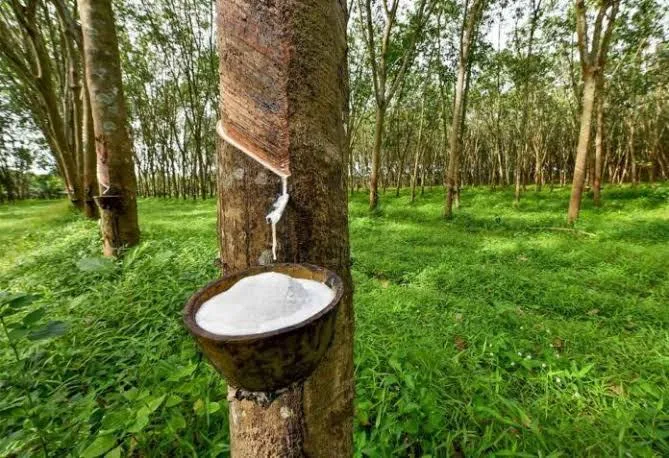GUWAHATI, Dec 3: Northeast India has significantly increased its contribution to the country’s natural rubber (NR) production, now accounting for 32% of the national output. This surge follows the addition of 200,000 hectares under the Indian Natural Rubber Operations for Assisted Development (INROAD) project.
Over the past four years, the INROAD initiative has covered 125,272 hectares across 94 districts in the Northeast and parts of West Bengal, marking one of the largest NR plantation expansions in India. The project, launched as a unique public-private collaboration, is the first of its kind globally, involving the tyre industry in rubber plantation development.
Financially supported by key members of the Automotive Tyre Manufacturers Association (ATMA)—Apollo, Ceat, JK, and MRF—the project is implemented by the Rubber Board of India. The target is to develop 200,000 hectares of NR plantations in the Northeast and West Bengal.
Rajiv Budhraja, Director General of ATMA, highlighted that despite facing various challenges, nearly 90% of the initial plantation target has been met. “The project has not only expanded planting areas but also strengthened local nurseries and enhanced the skills of growers, demonstrating the power of collaboration between tyre companies and the Rubber Board of India,” he said.
In the last four years, the project has distributed a record 5.3 crore planting materials, with a particular focus on marginalized communities and small-scale farmers holding less than one acre of land. Once fully implemented, INROAD is expected to improve the economic and social status of 2.5 lakh beneficiaries.
Before the INROAD initiative, Northeast India accounted for 23% of India’s NR plantation area. With the addition of 200,000 hectares, this share is set to rise to 38%, while the region’s NR production will increase from 16% to 32%.
Budhraja also mentioned that as the plantations mature, the next phase will focus on developing infrastructure, such as model smokehouses, and introducing new practices to boost productivity and sustainability.
The INROAD project not only promises to reshape India’s rubber industry but is also set to have a lasting socio-economic impact on the Northeast, positioning the region as a crucial player in the country’s rubber economy.

